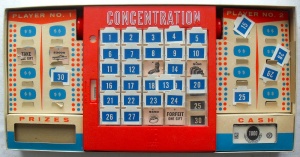
Categories
Archive
 RSS Feed
RSS Feed
Keeping Your Child Engaged When They Suffer From ADHD
Children suffering from attention deficit disorder (ADHD) have the ability to hyperfocus during certain activities. If you are a parent, you've probably witnessed their intense focus in specific areas. Yet, when it comes to schoolwork your child may often straggle to stay on task. Despite common misconceptions, ADHD doesn't impair the ability to pay attention, but rather it impairs the ability to control what the sufferer is able to pay attention to. Medication is something you should only discuss with your child's treating physician, however, there are multiple coping strategies you can use to help children with ADHD in environments where they are struggling.
 1. Play games geared toward attention-boosting.
1. Play games geared toward attention-boosting.
Rather than plopping down with the latest video game, try some classic childrens' games instead. Simon Says and Musical Chairs both require attention and listening skills.
2. Enjoy the great outdoors.
Spending time outdoors in natural environments have been shown to improve concentration. If possible, walk your child to school. After they arrive home, it's worth disregarding the traditional method of 'homework before play'. Let your child play outside before coming in to do homework —recent studies have linked time spent outside improves focus, so if you're child is struggling, this is a suggestion worth considering.
3. Teach your child how to self-monitor.
 As s/he gets older, self-monitoring becomes a bigger and bigger piece of managing life with ADHD so it's best to start early.
As s/he gets older, self-monitoring becomes a bigger and bigger piece of managing life with ADHD so it's best to start early.
Help your child become aware of those things that distract him or her. It takes dedication and patience, but over time, your child will begin to learn how distraction feels —something those with ADHD don't naturally recognize. Eventually s/he will recognize when her attention is waning.
Teaching tip:
ADHD sufferers greatly benefit from positive affirmations and feedback. When your child struggles, encourage them by acknowledging their frustration, but encouraging them to say, 'I will pay attention to my work' or some variation thereof. This helps to encourage perseverance.
4. Make learning active.
 Rather than having your child do worksheet after worksheet, encourage them to get involved. This can be everything from underlining reading materials with colored pencils, drawing cartoons to illustrate new vocabulary works, or using pieces of cereal or candy to work out his/her math problems.
Rather than having your child do worksheet after worksheet, encourage them to get involved. This can be everything from underlining reading materials with colored pencils, drawing cartoons to illustrate new vocabulary works, or using pieces of cereal or candy to work out his/her math problems.
Remember, ADHD is not a disease and those suffering are not abnormal. Our brains just work a bit differently and these tips can greatly improve the quality of life of the affected person, as well as the quality of work your child produces.













